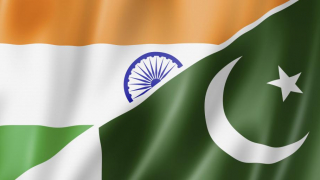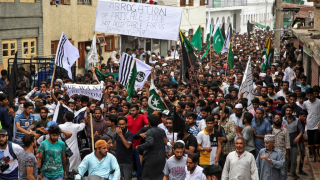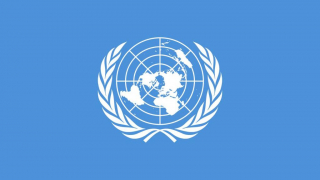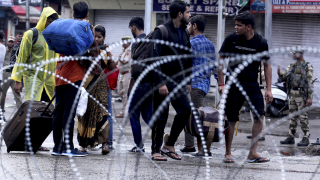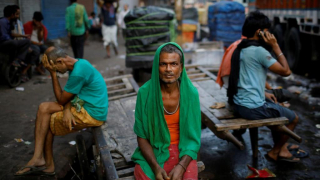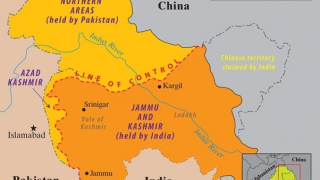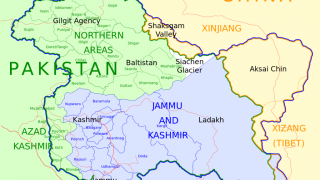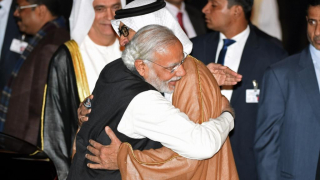Ground Zero - Kashmir
For the last 70 years, the world has been a witness to the Kashmiris' generational resilience against India's illegal occupation of Jammu & Kashmir and its state oppression. Political marginalization, insult of religious sentiments, social alienation and indiscriminate genocide of innocent Kashmiris have been a norm in Indian Occupied Jammu & Kashmir (IOK) since the onset of Indian occupation of the state.
Ever since August 05, 2019, after the revocation of Article 370 of the Indian Constitution, the Indian state has embarked on a new course of action to eliminate the Kashmiris' struggle for their right to self-determination. Several political and security analysts argue that India has taken a page out of Israel's playbook to implement new ways and methods to consolidate its illegal occupation of Jammu & Kashmir through political and demographic changes, use of excessive military force against unarmed civilians and territorial encroachment but truth be told, the far-right, Hindutva infested government of Bharatiya Janta Party (BJP) is notorious enough to come up with such brutal and inhumane strategies of subjugation and oppression on its own. After all, we have the example of how the incumbent Indian Prime Minister Narendra Modi conducted matters in the state of Gujarat during his long stint as the state's Chief Minister.
Before the current situation in IOK, post-August 05 is discussed, it is important to clarify the prevailing misperception about the Jammu & Kashmir dispute. The Jammu and Kashmir dispute between Pakistan and India, that has been a major bone of contention between two nuclear armed neighbours and has been the cause of unimaginable suffering of innocent Kashmiri people, is not an internal matter of India or a bilateral dispute between the two countries. It is an internationally recognized dispute, legally acknowledged by the United Nations and its Security Council via multiple resolutions. Resolutions that were adopted after consensus of all parties and unlike the practice in the United Nations, these resolutions were "accepted" and 'not imposed' by Pakistan and India wilfully.
Now coming to the current situation in IOK, while listening to the firsthand accounts of Kashmiri people, local & international journalists and foreign observers, narrating the state of conditions in IOK it makes one feel like experiencing ominous scenes of a never ending horror movie. Empty streets, barbed wires everywhere, presence of heavily armed military personnel, blockades, and a depressing silence enveloping entire cities. Such a sight, although seemingly from a horror movie is the prevailing condition and reality in the cities and towns across IOK. In the words of Mr. Anando Bhakto, Human Rights Journalist, "the current situation in Jammu and Kashmir have cemented the 'ruler vs. the ruled' perception in the valley."
According to many local observers and analysts, the government was preparing for this aggressive clampdown for a long time as it is evident from the measures and response of the authorities right after the revocation of Article 370. Amid constant crackdowns and dwindling freedoms, the Indian state immediately suspended all means of communication including the internet in IOK. Access of media outlets and journalists (local and foreign) was restricted to the state.
Detention of political leadership of IOK took place immediately after the announcement was made for the revocation of Article 370. Pro-independence leaders like Yasin Malik, Mirwaiz Umer Farooq, Abdul Ghani Bhat (to name a few) were arrested. Even leaders like Mehbooba Mufti and Omar Abdullah who had remained in power in IOK were put under house arrest after the center made a move against Article 370 on August 05. The mainstream Indian political leadership was also warned from visiting or speaking about the situation in IOK. Rahul Gandhi, former President of the Indian National Congress Party was stopped from entering into Jammu & Kashmir in August and was forcefully returned from Srinagar airport. Rahul Gandhi was visiting Kashmir on the invitation of Governor Satya Pal Malik. He is on record stating that "things are not normal in Kashmir".
To make matters more worse, state-provided security was also removed from the pro-independence leaders in IOK. Leaving the pro-independence leaders unprotected is a recipe for disaster as this has left them vulnerable for attack by anyone, especially the Indian state itself. Any harm to these leaders will be conveniently blamed on Pakistan while J&K state will plunge into violence and chaos in the absence of any kind of leadership whom they acknowledge and respect.
Further evidence for the case that the Indian state was planning for such a situation for a long time is the fact that only three days prior to the revocation of Article 370, a contingent of 28,000 troops (mostly CRPF personnel) were rushed to the state of IOK after 10,000 troops were deployed a week prior to it. An important point to note here is that no justification or reasons were given for such a move by the government to the media upon inquiry. This clearly means that the government was ready to deal with any opposition or resistance to its belligerent move with an iron hand.
The mainstream Indian media is constantly feeding lies to the Indian public and the international community by spreading misinformation and propaganda about the J&K dispute in general and contemporary situation in the state in general. The public is being presented with a narrative that presents the issue as India's internal matter and attributes the recent unrest in the state to Pakistan's interference. This policy by the BJP government is simply to for political point scoring but it is widening the gap between the Kashmiris and rest of the population in India and polarizing the society which will have far-reaching consequences very soon.
As mentioned earlier, deliberate insult of religious sentiments is also being used as a political tool by the Indian state in order to suppress voices being raised for self-determination. Police continues to hunt down suspects indiscriminately and crackdown on clerics has increased substantially in a move of religious marginalization. Clerics are being hounded all over the state and government warned everyone against speaking against the state and establishment in religious gatherings and congregations. All the major mosques across IOK remained empty and deserted even during the Friday congregational prayers for the last several weeks.
Adversity of the situation can be gauged from the fact that the current civilian population of IOK is 12.55 million and according to estimates provided by recent reports the number of Indian occupying forces in the state have increased from 0.7 million to 1 million troops at the moment which include personnel of various law enforcement agencies such as CRPF and BSF.
Moreover, there are more than 15 security & intelligence agencies working in the IOK including the NIA, IB, CID, SB and RAW. All these agencies enjoy full operational and jurisdictional autonomy and have their respective agendas. These agencies are used by the state to hound innocent civilians continuously for similar matters. They have the authority to arrest and detain anyone they want for indefinite period of time without being answerable to anyone if the detainee goes missing or dies during detention. Many mass graves, extra-judicial killings, abductions and unwarranted torture of innocent civilians of Kashmir are attributed to these agencies for the last several decades.
Nocturnal arrests of Kashmiri youth have increased after August 05. Raids and detentions without any regard to norms and procedure have become a regular feature, especially in Southern Kashmir. Spiralling death tolls and pellet injuries are going unaccounted due to complete communication blockade in J&K. Not only does it make the confirmation of any information impossible but it also kills the chances for people to get any update regarding their loved ones in and outside of the state.
India's policy orientation towards the peaceful resolution of the J&K dispute and the current discourse to eliminate the Kashmiri struggle for right of self-determination is a dangerous path that India has embarked upon. By revoking Article 370 and raising up the ante in IOK post-August 05, India has displayed sheer disregard for international law and human rights. A country that calls itself the biggest democracy in the world have made a travesty of democratic norms by trying to snatch the identity of the people of Kashmir and by refusing them their birth-right of self-determination.
Besides denying Kashmiris the freedom of expression, IOK has been under a permanent imposition of Section 144 which limits the right of assembly. According to this section, if more than 4 people gather at any place, the security forces (or occupying forces in case of IOK) are free to use any means necessary to disperse people. This means that Kashmiris don't even have the right to peacefully protest under Indian oppression.
Breakage of mainstream politics in IOK and a total suspension of basic democratic and civic norms in the state is a time bomb which could explode any time soon. The Indian state's policy of normalizing the situation in J&K dispute through force is highly faulty and an unsuccessful one. It has failed for the last 70 years and it will keep on failing for decades to come as with each passing day, the will and resolve of the Kashmiri people is getting stronger by each passing day. Rather than resorting to brute force, India should try to address the antagonism in Kashmir, negotiate with stakeholders, give the people of Kashmir their right of self-determination which was promised to them by the international community including Pakistan and India.



